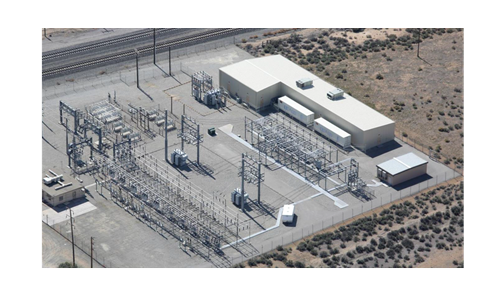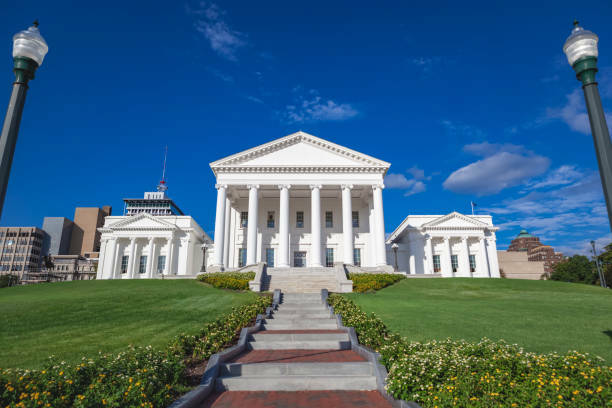Citizens For Great Falls
Newsletter
| |
Volume 1; Issue 4;
October 2025 | | |  | Note from CFGF’s President
This month, we are changing up the format of this newsletter somewhat, given the number of critical issues that have developed in a rapid-fire manner. October began with a succession of high-impact policy issues being put out for public hearings that can have a profound effect on the community and quality of life in Fairfax County. They are deeply important to us as residents of the county.
Significant changes have been proposed by planners that will impact land use and zoning, transportation, and the environment for years to come.
Citizens For Great Falls, as an entirely volunteer-supported advocacy organization, has attempted to sort through the barrage of topics that are popping up as we approach the close of calendar year 2025. Our detailed comments and testimony will be posted to the documents portion of our website. This edition will provide what may be best described as a thumbnail sketch of the key topics in which we are actively engaged. We’d like your feedback on this approach to our newsletter.
Send your thoughts to: citizensforgreatfalls@gmail.com
Thank you,
John Halacy, President |  | More Concerns Raised By Supervisor Herrity Over King Abdullah Academy Purchase
In his October 22 Newsletter, Springfield District Supervisor Pat Herrity commented on the $150 million purchase of the former King Abdullah Academy campus in Herndon. The School Board announced the purchase of the former private school campus in June but there have been questions swirling around the transaction since it was publicized.
He voiced several major concerns with the purchase:
- Conversion costs were not analyzed. Converting six schools into one high school could exceed $200 million, much higher than the $160 million in the current Capital Improvement Program, and they do not yet include athletic facilities like a football stadium.
- There is no proven need for a new high school. High school enrollment is declining, with many existing schools having empty seats now and projected increases in vacancies by 2030. Overcrowding can be managed within current schools or through expansions.
- No clear plans existed before the purchase. The School Board is still debating the type of school and has no concrete plan for the new building.
- Increased operational costs have not been discussed.New staff, maintenance, and expensive athletic facilities will add costs that will compete with teacher raises and other needs.
- The purchase is being justified by misleading talk of savings and overcrowding relief, which data does not support.
Supervisor Herrity has recommended that, before spending more money, FCPS should analyze conversion and operational costs, review enrollment projections, and compare these to renovating current schools. This will help decide whether to keep, repurpose, or sell the property.
Citizens For Great Falls President, John Halacy, has sent an email to County Executive, Bryan Hill, seeking clarification about the Supervisor’s comment that the school was purchased with Economic Development Authority bonds outside of FCPS's normal bonding capacity and without a formal discussion with the Board of Supervisors. However, County Executive Hill redirected CFGF to Supervisor Herrity for clarification, as he was: “…unable to clarify his (Herrity’s) comments, as there was no action by the Board of Supervisors regarding the use of EDA bonds.”
So, the question now turns on what funding source the Fairfax County School Board tapped to finance the $150M purchase at a time when school officials cite a budget shortfall. |  | School Boundary Meeting Update: What Lies Ahead?
At a recent School Boundary meeting, attended by CFGF President John Halacy, Superintendent Michelle Reid took questions from the community at the public forum held at Langley High School.
For many of us who have been following this process, the proceedings seemed much like previous discussions with FCPS—lots of information, but few solid commitments. While officials emphasized that no major changes are imminent for the Langley Pyramid, their responses left open the possibility that future developments could still prompt significant adjustments.
GF believes a major challenge to achieving a result is the sheer number of variables that could influence any decision related to school boundaries. Superintendent Reid has yet to clearly define or narrow the discussion around what specific criteria will ultimately drive boundary changes. This uncertainty creates a sense that too many factors—enrollment and building capacity, transportation logistics, split feeder patterns, shifting demographic projections, curriculum concerns, defining the meaning of “community,” not to mention proposals for a Western High School and rumors of an additional fifth scenario—are all competing for attention without a clear framework.
Right now, the process feels like a jumble of spinning plates, each issue complicated by dependencies on others. As a result, even as FCPS assures us there will be no immediate revisions, the lack of clarity keeps many questions unresolved. For families in the Langley Pyramid, it’s hard to feel fully reassured when so much still hangs in the balance.
Future Outlook
Examining past FCPS actions and regional trends, several indicators suggest boundary changes are probable in the next three to five years:
- Enrollment Projections: Recent FCPS data shows continued enrollment growth in several clusters, particularly near the Langley Pyramid’s borders, increasing pressure on existing capacity.
- Capacity and Facility Reports: School Board analyses highlight persistent over- and under-enrollment in various schools, making rebalancing a likely necessity.
- Demographic Shifts: The region’s evolving demographics, including population increases in feeder neighborhoods and shifts in student needs, put additional stress on current boundary lines.
- New Schools and Facilities: The Western High School proposal introduces a significant new variable, often cited by FCPS as a catalyst for boundary review, since major new buildings typically require ripple effects across several pyramids.
- Historical Precedent: In past cases, once scenarios and proposals reach this level of public discussion, FCPS has moved forward on changes within a few years, citing the need to address both equity and logistics.
Based on these patterns, it is reasonable to predict that the Langley Pyramid will face renewed, formal boundary review in the near future, likely as part of a wider effort to address capacity and growth in this part of the county. While specific timing and details remain uncertain, families should anticipate the need for further engagement and potentially significant impacts ahead as FCPS works to balance the complex mix of factors influencing school assignments. | Comprehensive Plan Amendment–
Policy Plan Changes Prompt Community Concerns
Jennifer Falcone, Secretary of Citizens For Great Falls, recently addressed the Fairfax County Planning Commission to summarize key concerns regarding the proposed Policy Plan Amendment. While members appreciate the extended review period, CFGF emphasizes that broader community input is needed due to the far-reaching effects on land use, zoning, transportation, and the environment.
Key Issues Raised:
- Clarity and Definitions: Terms such as “equitable development” require clear, precise definitions to avoid legal ambiguity and ensure effective policy implementation.
- Neighborhood Protection: Concerns persist that the new amendments shift away from protecting neighborhoods. Current policies could enable higher densities, threaten residential zoning, and erode longstanding commitments to suburban stability and quality of life.
- Urban Design and Land Use: County planning should respect the diverse needs of urban, suburban, and rural areas and not impose a “one size fits all” approach. Infrastructure capacity and community amenities must be considered in future developments.
- Affordable Housing: While supporting equity, CFGF notes that economic realities—such as stagnant wages and escalating housing prices—aren’t sufficiently addressed.
- Data Centers and Energy Demand: CFGF opposes removing requirements for data center placement near existing infrastructure and calls for active monitoring of their energy use.
- Historic Preservation: Sites like Georgetown Pike must be prioritized and protected from development that would erode their historic character.
- Stormwater Management: Stricter controls on runoff and impervious surfaces are needed to protect water quality amid stronger storms.
- Noise Pollution: More robust monitoring and research are recommended to address concerns about noise from data centers and recreational sites.
- Pipelines: Incidents like the 2024 Potomac Interceptor failure highlight the need for comprehensive hazard mitigation in county planning.
Summary Recommendation:
CFGF urged a pause on action to adopt the Policy Plan Amendment to allow for deeper community review. CFGF recommended clearer language, stronger neighborhood and historic resource protections (to Great Falls' Georgetown Pike), and more robust environmental strategies regarding stormwater management.
The Planning Commission has deferred the decision on this amendment until November 12, 2025. The record will remain open until that date to accommodate public commentary. The Board of Supervisors will conduct their Public Hearing on this matter on Tuesday, November 18, 2025. |  | Electrical Substation Zoning Amendment:
Data Center Surge Brings Challenges
CFGF commented on Fairfax County’s proposed Zoning Ordinance regarding electrical substations during the October 16th Planning Commission Public Hearing.
Principal Concerns:
- Unconstrained Data Center Growth: Industrial land near homes is being rapidly converted or redeveloped, sometimes adjacent to established neighborhoods.
- Visual Blight: Setbacks defined by substation structure—not homes—could allow imposing, unattractive substations near residences. CFGF advocates for stronger visual buffers, such as berms and fencing, tailored to facility size.
- Noise and EMF Exposure: Persistent humming noise and possible magnetic fields require careful study. CFGF insists on pre- and post-construction noise assessments and greater setback requirements, potentially up to 500 feet in sensitive areas.
- Safety Hazards: Substations and adjacent energy storage systems bring fire and explosion risks that necessitate careful zoning and safety buffers.
- Setback Standards: Industry standards range broadly, but the current proposal may fall short. Public advocates argue for increased distances from homes and more mitigation, especially as by-right projects limit community input.
- Great Falls residents should remain concerned that Data Center development in Industrial Zones I-5 and I-6 is permitted by right as a matter of policy and zoning regulation. This means that as fewer sites become available, data center developers will push for locations closer to residential areas, and large landowners will be tempted to sell for much more than assessed value, as seen in surrounding areas. There is an I-5 zoning district in Great Falls on Leesburg Pike, which borders several residential neighborhoods.
Summary Recommendation:
As data center and substation projects expand, CFGF calls for a balanced approach that protects residential areas through stronger setbacks, visual screening, and comprehensive safety assessments.
The Board of Supervisors will conduct their Public Hearing on this amendment on Tuesday, December 9, 2025, at 4:00pm at the Government Center. |  | 2026 Virginia General Assembly:
Legislative Priorities to Watch
As the 2026 session approaches, CFGF will monitor several legislative initiatives affecting the Great Falls area and surrounding communities:
- Budget and Funding for Local Projects:
- Key issues will include appropriations for local infrastructure, schools, transportation, and public safety.
- Public Education Initiatives:
- Expected focus on school funding formulas, safety enhancements, and additional mental health resources to address FCPS budget concerns and student well-being.
- Land Use and Zoning Reforms:
- Potential reforms to state zoning and housing laws could influence property development and suburban density in Northern Virginia. CFGF is particularly watchful of changes that might affect local planning authority in Great Falls.
- Environmental and Conservation Measures:
- Proposed bills supporting Chesapeake Bay cleanup, stormwater management, and land conservation will be important for protecting local watersheds and green spaces.
- Statewide Transportation Improvements:
- Legislation may increase investment in highways, mass transit, and bike infrastructure, potentially affecting commutes and mobility options in Fairfax County, including support for automated speed enforcement.
- Casino Expansion:
- Significant opposition remains regarding the development of a casino in Tysons. Local advocacy groups are campaigning for a moratorium and increased oversight, with surveys showing 75% of residents remain opposed.
Next Steps:
Bill numbers and exact language will become public when the General Assembly gavel falls in 2026. CFGF will share legislative updates and encourage community participation as policy debates unfold. |  | Member and Public Engagement – Call to Action
We need your support and your involvement in keeping our community informed of issues that have an impact on Land Use, Zoning, Transportation, the environment, and Public Safety in our area and beyond.
We will announce the next CFGF later this month and will post the time and date on our public-facing website: www.citizensforgreatfalls.org as well as notify our members by email.
If you would like to become more involved in our advocacy campaign, email: citizensforgreatfalls@gmail.com | |